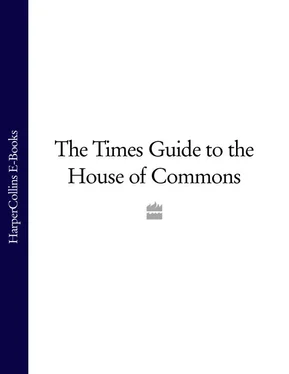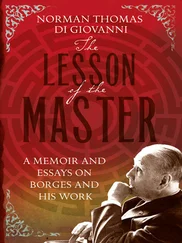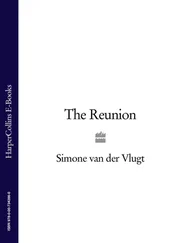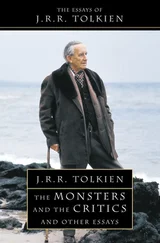Part of that disparity may be explained by the barrage of anti-Clegg stories unleashed by right-leaning newspapers after the first debate on April 15. On the morning of the second debate, the Telegraph used a massive front-page headline to reveal that some Liberal Democrat donors had been paying money directly into Mr Clegg’s bank account. He produced bank statements showing that these were to fund part of a researcher’s salary. The Daily Mail upped the ante with a front page accusing Mr Clegg of a “Nazi Slur”. The story was based on remarks he made in 2002, when he wrote that Britain had a “more insidious…cross to bear” than Germany over Nazism. The scoop drew ire from Mr Clegg’s supporters, who pointed out that the Mail’s website at one point carried no fewer than eight anti-Clegg stories.
Private Eye provided some light relief. “Is Clegg A Poof?” ran a fake Sun headline in the satirical magazine. “Voting For Clegg Will Give You Cancer,” a fake Mail page warned. “And Cause Collapse In House Prices.”
Many journalists expressed excitement at Mr Clegg’s elevation, however, not least because it added to the tantalisingly vague prospect of a hung Parliament. Nick Robinson, the BBC’s political editor, told the Radio 4 Today programme that Cleggmania was “the reason people in our business are getting so excited”. The Sunday Times ran a front-page story on a YouGov poll showing Mr Clegg to be more popular than Winston Churchill.
Whether the attacks on Mr Clegg had a significant effect is arguable. They may have slowed some of his momentum and left voters in doubt as to his party’s ability to govern. Perhaps more likely is that voters showed themselves more influenced by sustained media exposure in the years before an election, which the Lib Dems have never enjoyed, than by a one-off television performance, however impressive. With Mr Clegg as Deputy Prime Minister, that disparity is likely to be corrected.
Mr Cameron and Mr Brown were convinced that newspapers move votes. Yet as Roy Greenslade, Professor of Journalism at City University, points out, the press has been mostly pro-Tory since 1945, but Labour has won more elections. According to an Ipsos MORI poll cited by Professor Greenslade, between 20 and 30 per cent of Daily Mail readers consistently voted Labour between 1997 and 2005, despite the paper’s protestations. In 2010, however, the result may have been more similar to 1992, when only 14 per cent voted for Neil Kinnock.
Times readers appear to be even more independent: 64 per cent agreed with the paper when it advised them to vote Tory in 1992, according to Ipsos MORI, but in 2001, when the paper came out for Labour, 40 per cent of readers still said that they would support the Tories.
About 45 per cent of Sun readers pledged to vote Tory in 1992, when the paper put Neil Kinnock’s head in a light bulb on polling day and ran the headline: “If Kinnock wins today will the last person to leave Britain turn out the lights.” In contrast, only 29 per cent said that they would vote Conservative when the paper supported Mr Blair in 2001. A similar swing back to the Tories this year may have carried influence, especially in marginal seats.
Readers themselves do not consider newspapers to be influential at all. A survey by Press Gazette in March suggested that nine out of ten voters believed that their vote would be unaffected by any media organisation. Editors have to hope that Anthony Wells, a political commentator for YouGov, is right when he says: “The real impact is more subconscious, the long-term drip-drip of positive or negative coverage.”
The great irony about reporting this election is found in the numerous editorials warning voters against a hung Parliament. In the event, the actual outcome of 2010 was one that no newspaper, save The Independent , endorsed.
And the winner is…television
Andrew Billen
Television Critic
The sky was dusty with volcanic ash and the airwaves thick with politics. Yet for a while the electorate refused to inhale. In a multichannel world, it is easy to avoid the news, easier still the election specials. ITVI’s studio debates, Campaign 2010 with Jonathan Dimbleby , lost rather than gained audience as the election wore on. The regular political gabfests, BBC One’s Question Time and The Andrew Marr Show , suffered dwindling not growing viewing figures. It was like soccer fans turning off Match of the Day during the World Cup.
If, like the grounded aeroplanes, the campaign was going to take off, it would take something new, and something different. It was supplied by three live, 90-minute election debates agreed between the politicians and networks after tortuous discussion. Their order having been decided by lottery, the first, ITV’s on April 15, centred on domestic policy. Its MC, Alastair Stewart, proclaimed it historic. Its 9.5 million viewers – a figure that would not disgrace a Saturday night Britain’s Got Talent – apparently agreed. But even Stewart could not have predicted that the commentariate and the focus-grouped would independently declare a clear winner in the Liberal Democrats’ Nick Clegg or that his party’s trend in the polls would go vertical. The debate was declared a “game changer”.
As talent contests, the following debates on April 22 and April 29 were less decisive, mainly because, what by now could be seen as Clegg’s challengers, Gordon Brown and, especially, David Cameron got better at them. Mr Cameron particularly mastered the “trick” of addressing the camera lens directly, a technique pioneered more than 50 years ago when hosts of Sunday Night at the London Palladium realised that faced with the choice of addressing the stalls or the nation’s sitting rooms it was wise to talk to the many not the few.
The second debate, focusing on foreign policy and held by Sky News, was a success for a channel whose political editor, Adam Boulton, had campaigned hard for them to happen. Its 4.4 million viewers was a record audience for a Sky News production. Ofcom, the regulator, received many hundreds of complaints, however, mainly because Boulton, as chairman, broke protocol by asking a question of his own. Most confidently staged was the BBC’s final “economic crisis debate”, although it attracted fewer viewers than the first. Its experienced host, David Dimbleby, intervened more than either Stewart or Boulton, but only to repeat his audience’s questions. In future such debates may have less constricted or more varied formats. It is, surely, impossible to imagine an election happening without them.
With even Jeremy Paxman’s traditional roastings of the leaders producing few headlines, only once outside the set-pieces did television change the agenda, and then it was by accident. A Sky News radio mike was left on and attached to Mr Brown as he sped from an unsatisfactory encounter with a pensioner supporter. She was, he told an aide, a “bigoted woman”. Within hours, his remarks were played back to him on Jeremy Vine’s Radio Two show. The camera showed him head in hands. After a self-immolating visit to Mrs Duffy’s home in Rochdale, Mr Brown emerged before more cameras bashfully declaring himself a sinner but a penitent one. The mini-soap looked a disaster for Mr Brown, but, as it turned out, his ratings had nowhere further to fall.
The election night programmes for the first time featured an exit poll jointly paid for by the BBC, ITV and Sky. Its prediction of a hung Parliament, with Mr Cameron short of an overall majority by 19, was initially treated with scepticism by the studio pundits, mainly because it insisted that the Lib Dems’ representation in Westminster would decline. It proved almost uncannily accurate. The result was so close that BBC One’s election programme, which began at 9.55pm on the Thursday did not end until 8.45am on the Friday. David Dimbleby, showing stamina uncommon in a septuagenarian, resumed his anchorman’s seat at 11am and carried on until 4pm. His efforts, showcased in a huge glass set built in Television Centre, earned the BBC more than 4 million viewers overnight. ITVI’s show, hosted by Alastair Stewart, attracted only an average of 1.26 million and was beaten by a satirical commentary on the results from Channel 4. Sky News did worse than it had five years before, its 111,000 viewers probably depleted by its new-fangled HD transmission causing its sound to ride out of synch.
Читать дальше












